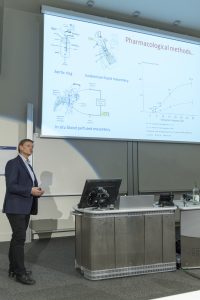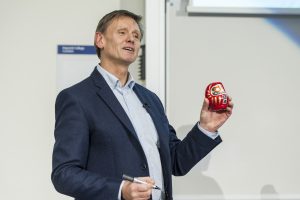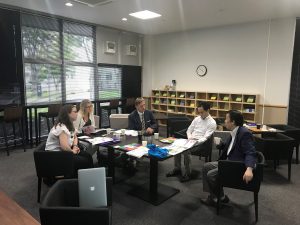Power dynamics in student staff partnerships – a RAISE special interest group event
Mike Streule, Director, StudentShapers
I recently spent an interesting afternoon with other Student partnership practitioners and students engaged in student partnership initiatives at a half day meeting discussing power dynamics in staff-student partnership work at the University of Westminster. In recognition that our institutions instil a strong hierarchical structure amongst staff, and that generally the students fall beneath staff in that hierarchy in many contexts, provides us with a troublesome backdrop against which to facilitate student partnership projects. This backdrop leans towards uneven power distributions amongst co-workers on projects with the power bias typically leaning towards the staff. A thought provoking keynote talk by Dr Lucy Mercer-Mapstone extended this further, recognising that various characteristics such as gender, race and nationality could contribute further to the power dynamics amongst co-workers and create a complex intersectionality.
Student partnership often cites the desire for partnerships to operate in a model of reciprocity, and of mutual trust and empowerment within the project. But taking all these multi-dimensional power distributions, it is unlikely, perhaps impossible to truly have an even distribution of power amongst a staff-student co-working team. Perhaps, even, it is unethical to do so – should we totally de-legitimise the Professorship that an individual may have ‘won’ when all the statistical data would suggest they (according to their characteristics) were unlikely to do so?
So where does that leave us? Staff-student partnership should none the less be intentionally disruptive to the power relationships between staff and students, at least within the context of the project. And such disruption is likely to be potentially uncomfortable to staff and students, but also incredibly valuable. It gives greater agency and legitimacy to the student contribution to a project, and serves as a valuable learning experience that students may encounter again, and the experience directly aligns with some of Imperial’s graduate attributes.
Closing the meeting included an interesting discussion around the post-partnership relationships that staff and students might assume. Perhaps the balance of power shifts heavily back to the staff partners as future assessors of a student’s work or degree outcome? One can of course not retract a lived experience of partnership, but merely acknowledging a (temporary) disruption to the pre-existing power hierarchies by both staff and student is valuable in being able to, in some capacity, resume pre-existing power balances. Importantly however, working in, and developing the student partnership space can in time challenge the institutional power dynamics between staff and students and develop them into a more productive arrangement.
Imperial’s student partnership programme StudentShapers is growing and is part of the work of the Learning and Teaching Strategy to facilitate staff engaging with students as partners. A roundup of the day, including Panopto recording will be added to the University of Westminster website soon. Feel free to get in touch at studentshapers@imperial.ac.uk.


